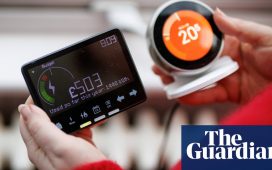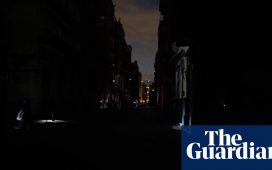Stay informed with free updates
Simply sign up to the UK energy myFT Digest — delivered directly to your inbox.
British households and businesses will be offered payments to cut their electricity usage at times of tight supply throughout the year under plans to help the country’s power network cope with an increased reliance on wind turbines and solar panels.
A scheme introduced in 2022 following Russia’s invasion of Ukraine to help Britain avoid blackouts would be expanded as soon as this winter, the National Energy System Operator (NESO) said.
Called the “Demand Flexibility Service”, it offers payments to households and businesses who sign up through their energy supplier to use less electricity during short periods, when it would help the operator balance supply and demand in the UK’s power system.
The NESO, which was bought by the UK government from National Grid for £630mn this month, has applied to energy regulator Ofgem to run the programme all year-round, it said on Tuesday.
The scheme previously ran during the winter months, with the operator using it as one of its last resorts to avoid the margin between available power and demand falling too low.
If expanded, NESO would use the scheme in a more routine way that would see electricity companies on behalf of their customers offer to cut usage when needed, as part of the operator’s wider efforts to balance supply and demand.
“Once approved, NESO will be able to use [the scheme] throughout the year, allowing consumers and businesses to compete directly with power stations and renewables,” said NESO.
The scheme is part of a major shift that will need to take place in the way consumers use electricity as part of the transition away from fossil fuels and towards renewable energy.
Operators need households and businesses to be more flexible about when they use electricity, in order to better match up with intermittent sources of supply such as wind and solar power.
This could mean, for example, running machinery or charging electric cars overnight rather than during typical peak hours in the evenings. Offering payments through the demand flexibility service is one way of encouraging this behaviour.
Suppliers taking part in previous years include British Gas and Octopus Energy, the UK’s two largest household energy suppliers. Last winter, 2.6mn households and businesses took part, saving 3.7 gigawatt-hours. Suppliers were paid £3 per kilowatt-hour saved during test runs.
NESO, which has been given a wider remit by the government after its purchase, is not expecting the gap between electricity supplies and demand this winter to fall to concerning levels, it said in its winter outlook forecast on Tuesday.
The closure of Britain’s last coal-fired power plant at the end of September has been offset by more cables to import supply from the continent, and batteries.
NESO would “continue to prepare for a range of eventualities”, added Craig Dyke, director of system operations.










